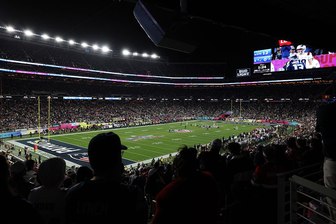On Sunday, Kansas City Chiefs quarterback Patrick Mahomes, coached by Andy Reid, will compete against Philadelphia Eagles quarterback Jalen Hurts, coached by Nick Sirianni.
Americans do not have a clear favorite in this weekend's Super Bowl matchup between the Chiefs and the Eagles, according to the latest Economist/YouGov poll. Three in 10 Americans (30%) want Kansas City to win, while a similar share (27%) would prefer an Eagles victory; 43% don't care. Kansas City is slightly favored among people who say they will "definitely watch" the game (48% vs. 40%), and KC is preferred by a ratio of nearly two to one among people living in the Midwest (34% vs. 19%).
Most Americans (55%) who say they "definitely" or "probably" will watch the Super Bowl choose the game itself as their favorite part of the broadcast, followed by the commercials (22%) and the halftime show (18%). Women who are likely to watch the Super Bowl are more likely than men to choose the commercials (27% vs. 19%) or halftime show (25% vs. 12%) as their favorite part of the broadcast. Men (66%) are much more likely than women (42%) to say the game is the best part.
— Carl Bialik and Taylor Orth contributed to this article
See the toplines and crosstabs from the Economist/YouGov poll conducted on February 4 - 7, 2023 among 1,500 U.S. adult citizens
Methodology: Respondents were selected from YouGov’s opt-in panel using sample matching. A random sample (stratified by gender, age, race, education, geographic region, and voter registration) was selected from the 2019 American Community Survey. The sample was weighted according to gender, age, race, education, 2020 election turnout and presidential vote, baseline party identification, and current voter registration status. Demographic weighting targets come from the 2019 American Community Survey. Baseline party identification is the respondent’s most recent answer given prior to June 1, 2022, and is weighted to the estimated distribution at that time (34% Democratic, 31% Republican). The margin of error for the overall sample is approximately 3%.
Image: Getty Images (Mitchell Leff)












